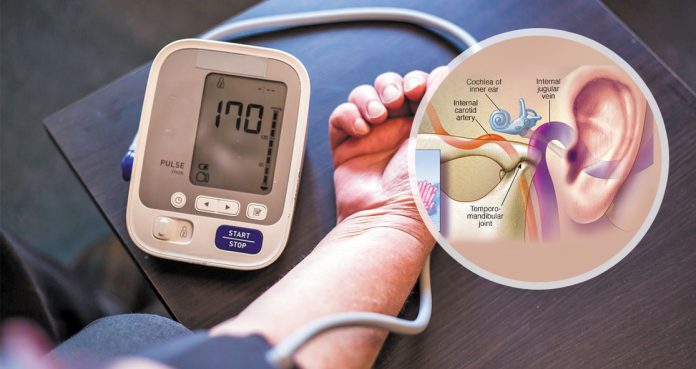A new study has examined the link between blood pressure and hearing loss induced by occupational noise. The study found that chronic exposure to noise increases the risk of high blood pressure (hypertension).
Worldwide, more than 600 million people have occupations that make them vulnerable to dangerous noise levels. And in the United States, hearing loss induced by occupational noise is one of the most prevalent job-related conditions.
In recent years, many researchers have found that noise exposure affects not only hearing but also heart health and the digestive system.
The recent study published in an open access scientific journal PLOS ONE.
According to stats, more than 100 million Americans have hypertension, so it is imperative to determine any risk factors that might lead to high blood pressure.
Previous studies have found the link but the findings were not consistent because the researchers believe that it could be due to difficulties in quantifying total exposure to noise over the years. So, to address this issue, they used hearing loss as a “biomarker” to quantify noise exposure.
The researchers said, “Several studies [have] reported that bilateral high-frequency hearing loss (BHFHL) is associated with cumulative occupational noise exposure, and BHFHL can serve as an early biomarker for the actual personal exposure to occupational noise.”
The authors found that “workers with mild and high BHFHL had [an increased] hypertension risk of 34% and 281%, respectively.”
“The present study suggested that occupational noise exposure was positively associated with blood pressure levels and hypertension risk,” they concluded.
The study also found that the risk of hypertension due to occupational-related noise exposure was high among men because they are exposed to higher-intensity noise more than women are.
However, the study had a few limitations. For instance, the researchers recognized that the study was cross-sectional, meaning they did not track all the participants over the years; therefore, it is not possible to “prove cause and effect.”
In addition, they noted that they did not consider some variables that may affect the risk of hypertension, such as smoking status, alcoholic intake, body mass index, and psychological factors. In spite of finding the potential link between hearing loss induced by occupational noise and hypertension, many researchers said more studies are needed to prove the cause and effect.























